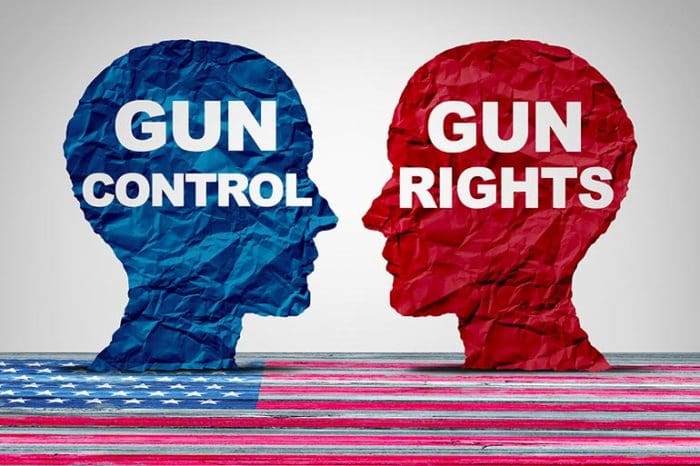Yesterday’s New York Times ran an op-ed by Gregory Gibson, a man whose son was murdered by a psychotic fellow student at Bard College at Simon’s Rock in Massachusetts in 1992. As a result, and as many family members do after such a tragedy, he became a gun control (he’d say “gun safety”) advocate.
His long, thoughtful piece is titled, A Gun Killed My Son. So Why Do I Want to Own One? That obtuse headline was, of course, assigned by a NYT editor and is as typical as you’d expect from the determinedly anti-gun Gray Lady.
We’d suspect that Gibson himself might even object to that header because, of course, it wasn’t a gun that murdered his son that day in December of ’92. The SKS rifle that was used didn’t pull its own trigger. It was fired by an 18-year-old mentally disturbed Taiwanese-American student who’s now serving two life sentences.
Title aside, though, Gibson’s op-ed recounts the realization he came to that one of the frequent criticism of gun control advocates by those on the pro-gun side was correct — so-called gun safety advocates (you may know them as gun-grabbers) have no credibility in the debate because they know nothing about guns or the people who own and use them.
The article recounts Gibson’s path to gun ownership and enlightenment in the ways of America’s gun owners. But maybe the most important understanding he came to was this:
I’d been told repeatedly by gun owners — often from the back of whatever crowd I was addressing — that my arguments for gun control had little credibility because I knew nothing about guns or gun culture. Eventually I came to see some truth in that assertion. If there was a gun culture of Second Amendment zealots, there was also an opposing gun-control culture made up of people who knew little about guns except that guns were bad. People, in other words, like me.
Received wisdom had it that the two sides in the gun control “debate” would eventually hammer out a consensus resulting in “sensible” gun legislation that would “respect the Second Amendment” while making it harder for criminals and would-be mass murderers to get guns. But now it seemed that the implied dialectic was a sham, and that in fact the two sides were locked in a sterile opposition from which no consensus would ever emerge. America was in the midst of a culture war, not a debate. We were muddling our bloody way toward some new identity as a people, or perhaps our dissolution as a people, and no survivor’s story would change that. For the first time since Galen’s death, I saw the situation in a different light.
You can read the whole thing if you have time. Gibson navigated the may-issue hurdles of gun ownership in the Bay State. He came to enjoy owning and shooting handguns. He’s a fan of his SIG P320.
He’s convinced allowing teachers to arm themselves is a really bad idea. And his inner city gun control advocacy has led him to conclude that “focusing on legislation as a means of reducing gun deaths felt to me like a project for white people.”
As Gibson himself concluded, “when it came to actual people and realistic approaches to the problem of gun violence, black (anti-gun) and white (pro-gun) were still worlds apart.”
In short, he’s going to keep working for “gun safety,” but he has a new approach now. He’s concluded that the only way to save lives is through a blend of education, cultural change (whatever that means) and, of course, legislation.
But Gibson has probably hit on a central truth in the gun rights debate in this country — the fact that there is no middle ground to be found between the two sides. Whether it’s that mythical “national conversation” about guns or demonstrations featuring civilian disarmament advocates on one of the street and Second Amendment supporters on the other, no compromise is really possible.
How do you compromise with someone who wants to eliminate one of your civil rights? How do you come to a meeting of minds and forge a high-minded consensus with someone who threatens to wage war to achieve his gun control and confiscation plans?
If Gibson’s turgid op-ed is valuable beyond the revelation that, “Hey, guns really aren’t so bad after all,” it’s for his reluctant grasp of the fact that, on some questions, there is no compromise to be reached. Some issues truly are black and white.
We either have the right to keep and bear arms or we don’t. The Second Amendment either means what it says or it doesn’t. The courts either follow they law or they ignore it.
Once that essential truth dawns on more people on both sides of the question, maybe then we can finally have that honest conversation about guns.
